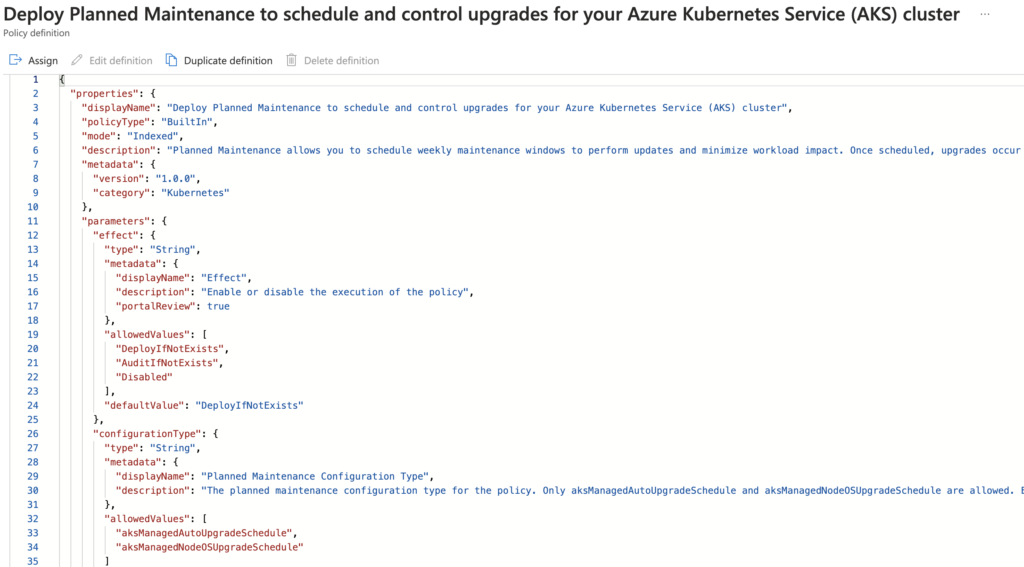Hi!
The « Bring your own keys » (BYOK) capability for Azure disks is now supported in preview within AKS.
By default, data is safeguarded using Microsoft-managed keys, ensuring a high level of protection. For enhanced control over encryption keys, the option exists to provide customer-managed keys. This empowers you to utilize your chosen keys for encrypting both the operating system and data disks associated with your AKS clusters, thereby granting you an added layer of encryption customization.
Enabling encryption with customer-managed keys for the OS disk is exclusively possible during the initial creation phase of an AKS cluster. When opting to encrypt a node pool equipped with ephemeral OS disks using customer-managed keys, a key rotation process within Azure Key Vault necessitates the following steps:
- Decrease the node pool count to 0.
- Initiate the key rotation process.
- Restore the node pool count to its original value.
By adhering to these steps, you can effectively ensure the secure rotation of keys for enhanced encryption within your AKS environment.
Register the preview feature
az extension add --name aks-preview
az extension update --name aks-preview
az feature register --namespace "Microsoft.ContainerService" --name "EnableBYOKOnEphemeralOSDiskPreview"
az feature show --namespace "Microsoft.ContainerService" --name "EnableBYOKOnEphemeralOSDiskPreview"
az provider register --namespace Microsoft.ContainerService
Create a KeyVault
az group create -l myAzureRegionName -n myResourceGroup
az keyvault create -n myKeyVaultName -g myResourceGroup -l myAzureRegionName --enable-purge-protection true
Create an instance of a DiskEncryptionSet
keyVaultId=$(az keyvault show --name myKeyVaultName --query "[id]" -o tsv)
keyVaultKeyUrl=$(az keyvault key show --vault-name myKeyVaultName --name myKeyName --query "[key.kid]" -o tsv)
az disk-encryption-set create -n myDiskEncryptionSetName -l myAzureRegionName -g myResourceGroup --source-vault $keyVaultId --key-url $keyVaultKeyUrl
Create a new AKS cluster and encrypt the OS disk
diskEncryptionSetId=$(az disk-encryption-set show -n mydiskEncryptionSetName -g myResourceGroup --query "[id]" -o tsv)
az group create -n myResourceGroup -l myAzureRegionName
az aks create -n myAKSCluster -g myResourceGroup --node-osdisk-diskencryptionset-id $diskEncryptionSetId --generate-ssh-keys --node-osdisk-type Managed
az aks create -n myAKSCluster -g myResourceGroup --node-osdisk-diskencryptionset-id $diskEncryptionSetId --generate-ssh-keys --node-osdisk-type Ephemeral --node-vm-size Standard_DS3_v2
az aks nodepool add --cluster-name $CLUSTER_NAME -g $RG_NAME --name $NODEPOOL_NAME --node-osdisk-type Ephemeral
Encrypt your AKS cluster data disk
kind: StorageClass
apiVersion: storage.k8s.io/v1
metadata:
name: byok
provisioner: disk.csi.azure.com # replace with "kubernetes.io/azure-disk" if aks version is less than 1.21
parameters:
skuname: StandardSSD_LRS
kind: managed
diskEncryptionSetID: "/subscriptions/{myAzureSubscriptionId}/resourceGroups/{myResourceGroup}/providers/Microsoft.Compute/diskEncryptionSets/{myDiskEncryptionSetName}"
az aks get-credentials --name myAksCluster --resource-group myResourceGroup --output table
kubectl apply -f byok-azure-disk.yaml
Source: https://learn.microsoft.com/en-us/azure/aks/azure-disk-customer-managed-keys
Maxime.
